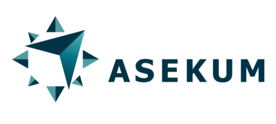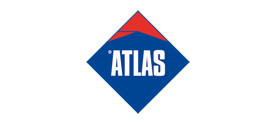What Do You Need to Consider When Managing Remote Teams?

TL;DR
Working from home opens new opportunities for us which we should actively make use of. Though it requires more effort, especially on managers’ part, remote work can be as effective as working in the office. You should, however, avoid repeating your office habits when working from home. Instead, it is recommended to focus on more autonomy for your employees. It will bring excellent results if we also pay attention to communication, base our work on good intentions, and make sure team members can physically meet once in a while.
For the last few months we have been working remotely. Even when the pandemic threat is gone, we are never going to return to the workstyle that we got used to. Good news is that, especially in the IT industry, such shock therapy didn’t cause much turbulence. I recall the notorious Year 2000 problem that at the end of the 20th century made the entire industry busy, but eventually didn’t do much harm. A lot of enthusiasts of remote work are absolutely sure that we found the Holy Grail of teams’ and employees’ efficiency and that all office workers can finally do their job fully engaged and on their own terms.
Are we really witnessing a revolution that for the first time in history doesn’t have any victims?
What drives us? Autonomy, Mastery, Purpose by Dan Pink
If we take a look at the model that Dan Pink describes in his game-changing book titled Drive, I would definitely say yes. The author defines three pillars of motivation of modern knowledge workers – autonomy, mastery, and purpose. He emphasizes that the old system of sticks and carrots doesn’t work on employees who can’t rely on strictly defined procedures and whose daily tasks have no obvious, single solutions.
Don’t lose your purpose when working remotely
First I’ll discuss purpose. Although in a standard situation it is „the most difficult” pillar that requires the most effort, we have to take care of it in exactly the same way regardless of whether we’re working remotely or in the office. It is likely that while sitting alone in the office we more often think about the broader purpose of what we do. But, on the other hand, if we were convinced before the pandemic that our work brings satisfaction and benefits for other people and we understood how our work affects our clients, coworkers and company, switching to remote work should not change that notion.
To sum it up – purpose should not be affected, however we could make sure more often that our employees know how important their work is to us.
Give autonomy. Don’t spy on your employees
The next pillar – autonomy, i.e. the opportunity to decide how, when and by what means it is best to do our job. If we think about it a little, we may come to the conclusion that the office is one of the most prohibitive spaces that we voluntarily choose to be in. Usually we cannot decide on the physical location of our office or our location within it. Our coworkers are chosen without asking our opinion. In open space offices we have no control over the air conditioning, we are not separated from the noise. Instead, we are constantly disturbed by other people, who move and talk near us.
As we move out of the office, we automatically extend our freedom and sense of autonomy, which, as a result, should immediately translate to higher efficiency. We just have to remember one thing – we must resist the idea of bringing our office habits into remote work, especially the constant monitoring of employees’ activity. It may look tempting to take a look at an employee’s computer screen or to keep the camera on all day, but it is devastating to our sense of autonomy.
All in all, allowing work outside of the office, in an environment that we can arrange ourselves should greatly extend the boundaries of our autonomy, which is an enormous advantage over working in the office.
Develop mastery. Make extra effort to exchange knowledge
When it comes to the last pillar – mastery – things get a little more complicated. There is no doubt that we learn a lot from our coworkers, often by standing together at the flipchart or at the coffee machine. To maintain and improve the exchange of knowledge, which is natural in standard open space offices, we have to specifically plan and lead meetings in which knowledge can be shared. Optimally, it should be in the form of workshops where one part of the team shares some ideas and encourages interactive participation of all team members by accepting questions and facilitating the exchange of opinions.
Such workshops, of course, can be done remotely, but I would strongly recommend meeting at a single, physical location. It could be empty office space or any other place that offers good environment for creative work. By doing that, we can achieve the additional goal, which we tend to forget while working remotely: building and nourishing relationships between coworkers.
It is a part of our nature to offer limited trust to the person who we can only experience though electronic tools. Culturally we get to know people by talking, looking in their eyes and subconsciously reading non-verbal cues. Modern technology erases most of those signals. We tend to underestimate the real value of a meal taken together. It is a good idea to provide food and drinks for workshops, and if we finish the meeting in the evening, a party can be a nice conclusion to the entire day of working together.
In summary, we can make sure our employees build their sense of mastery while working remotely, but it requires more effort and planning than in the case of traditionally working in an office.
This extra effort is not only limited to organizing workshops from time to time. There are also some aspects that were important before the pandemic, but now play a much bigger role and require special attention.
Focus on team integrity
One of these critical tasks is to focus on the team integrity. When we stop seeing each of our team members individually, we start to align teams with tasks. Often it seems that if we temporarily add or remove one more person, the team size will be just perfect for delivering a project. Mathematically, it looks pretty good, but it is the worst decision we can make.
Teams that are built on people who trust each other, who have had a chance to support each other and go through hard times are much more effective than groups built to deliver specific tasks. We should always – especially while working remotely – break down project tasks until we find a way to fit them into existing teams. Decisions concerning team membership should always be done in the context of strategic goals that reach beyond single projects.
Set realistic goals
Lack of physical contact can lower our sensitivity to symptoms of fatigue in our employees. Team members might put more pressure on themselves, which results in frustration, lower engagement, and eventually in more mistakes in everyday work. We have to bear in mind the rules that should be applied as usual – setting challenging but realistic goals, accepting the space needed for exploration, but also accepting mistakes when they are the result of the learning process, not fatigue.
Support your leaders
Remote work is even more challenging for team leaders. If you manage such leaders, you should definitely provide them with more support. Paradoxically, giving more autonomy can lead to extreme scenarios – one in which the leader abandons their role and the other in which they become a control freak. Both scenarios end badly for the team and the leader. To avoid such situations we have to focus even more on communication, which during remote work cannot be done with all of our natural capabilities and senses.
Pay attention to what people feel. Assume good intentions
Most of all, we have to pay closer attention to minor symptoms of frustration, discouragement, depression, irritation or withdrawal, because they can be less visible. We have to make sure not only that the content of the message has been delivered, but also that our intentions, in particular, were clear. People who are more introverted can be especially lost during big, remote meetings where they are reluctant to present their opinions.
Remote work allows asynchronous communication. We don’t have to make all decisions during meetings. We can give ourselves more time to think and gather all opinions after the meeting and discuss them in a separate thread on an internal forum.
During remote work we have to rely more on written communication. It is essential to be mindful of precision, but, most of all, of a gentle and conciliatory language. Let’s write in a way that doesn’t make our recipient feel attacked or threatened. Let’s interpret what other people write on the assumption of maximum good will and, if in doubt, in favor of our coworker. We have to remember that some people struggle with written communication.
Embrace unique possibilities that remote work offers
Finally, I would like to mention another important aspect. There are a lot of challenges that remote work brings. But it also brings new opportunities. We cannot replicate our offices in our homes. We need to explore and exploit the specific nature of remote work. This new situation opens up more opportunities for collaboration on online documents, which helps us work out the final versions faster. We can create minutes of our meetings online, so they don’t have to be additionally accepted in a lengthy process that sometimes takes more time than the original meeting. We can share screens to dynamically switch contexts, which helps to settle doubts quicker and more effectively.
Of course, all of this has been possible before, but for many different reasons implementing digital collaboration has always been waiting for better times. Now is the time to explore countless possibilities offered by new digital tools. Such exploration has positive motivational impact, because it opens our coworkers to out-of-the-box thinking and improves their effectiveness.
Make extra effort to transform your teams
In summary, we live in a world where we’ve experienced something that seemed impossible a couple of months ago. We moved almost all of our work from offices to our homes and regardless of how the pandemic is going to end we are never going to return to our old work environment. This revolution has a great potential to change our professional lives in a very positive way, but it cannot be taken for granted. A considerable increase of autonomy and, consequently, engagement of our employees is worth taking the additional effort.
I strongly encourage everyone to take it. Good luck!






